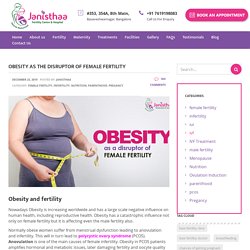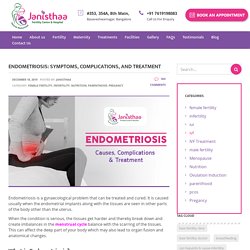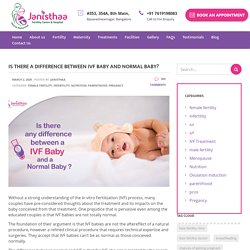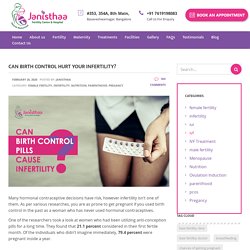

Bestivftreatmentbangalore
How smoking affects female and male fertility? How does smoking affect Male fertility?

Toxins found in cigarettes are now and then to blame for terrible health impacts. Smoking opens men to significant levels of cadmium and lead, metals that have been connected to diminished fertility. Lead levels have been seen as significantly higher in infertile smokers when compared with both fertile and infertile non-smokers. High smokers (the individuals who smoke at least 20 cigarettes for every day) were found to have more significant levels of cadmium in their semen. Men who smoke can have issues getting and keeping erections.
Men produce sperm constantly. Heavy smoking (in excess of 20 cigarettes for each day) by fathers at the hour of origination expands the baby’s risk of leukemia. How does smoking affect female fertility? Smoking is related with the following fertility problems: Women who smoke in pregnancy are almost certain than non-smokers to have a miscarriage. Each cigarette smoked builds the risk of miscarriage by one percent. Impact of Obesity on Female Fertility. Obesity and fertility Nowadays Obesity is increasing worldwide and has a large scale negative influence on human health, including reproductive health.

Obesity has a catastrophic influence not only on female fertility but it is affecting even the male fertility also. Normally obese women suffer from menstrual dysfunction leading to anovulation and infertility. This will in turn lead to polycystic ovary syndrome (PCOS). Anovulation is one of the main causes of female infertility. Obese women normally have higher levels of a hormone called leptin, which is normally produced in fatty tissues. Apart from aging other factors that you deal with such as smoking, consumption of caffeine and alcohol, stress, exposure to environmental pollutants and bad nutritional habits have a negative impact on female fertility.
Endometriosis: Symptoms, Complications, and Treatment. Endometriosis is a gynaecological problem that can be treated and cured.

It is caused usually when the endometrial implants along with the tissues are seen in other parts of the body other than the uterus. When the condition is serious, the tissues get harder and thereby break down and create imbalances in the menstrual cycle balance with the scarring of the tissues. This can affect the deep part of your body which may also lead to organ fusion and anatomical changes. What is Endometriosis? Endometriosis is endometrial implant tissue that is present inside the uterus starts to form in the other body parts. It is abnormal when these tissues start growing outside the uterus areas. This condition can be painful during your menstrual cycle. It can thus not only cause physical pain but also impact the normal functioning of other body organs when the lesions grow larger. Symptoms Common signs and symptoms of endometriosis include: Do’s and Don’ts to ensure a Healthy IVF Pregnancy.
According to ICMART, over 8 billion babies have been born through IVF worldwide as of last year since 1978 and the average success rates worldwide are said to be 30% to 35%.

Do these numbers look promising? A lot of fertility clinics claim to have higher success rates without much evidence or scientific backing leading to disappointments. Thus, success with assisted reproductive techniques is not always a hundred per cent assured. A lot of factors play a role in conceiving through IVF and it becomes important to take several precautions to ensure that the procedure is successful. Are IVF Babies Healthy Like a Normal Baby ? Without a strong understanding of the In vitro Fertilization (IVF) process, many couples have pre-considered thoughts about the treatment and its impacts on the baby conceived from that treatment.

One prejudice that is pervasive even among the educated couples is that IVF babies are not totally normal. The foundation of their argument is that IVF babies are not the aftereffect of a natural procedure, however a refined clinical procedure that requires technical expertise and surgeries. They accept that IVF babies can’t be as normal as those conceived normally. The difference between normal and IVF is that for IVF, the egg is treated by the sperm in a lab under the supervision of experienced researchers. A specific degree of embryo growth happens in the lab, and once the embryo has arrived at the correct stage in its improvement, it is set in the female’s uterus, after which the development and whole pregnancy is carried on as it would after natural conception.
Can Birth Control Cause Infertility? Many hormonal contraceptive decisions have risk, however infertility isn’t one of them.

As per various researches, you are as prone to get pregnant if you used birth control in the past as a woman who has never used hormonal contraceptives. One of the researchers took a look at women who had been utilizing anti-conception pills for a long time. They found that 21.1 percent considered in their first fertile month. Of the individuals who didn’t imagine immediately, 79.4 percent were pregnant inside a year. Contraception and Menstrual Cycle Variations In another interesting but small study published in Gynecological Endocrinology, a group of 175 ladies who ended oral contraceptives was compared with a group of 284 women who had never taken birth control pills. The research found that 57.9 percent of the women who stopped birth control pills ovulated and had solid luteal stages in their first post-pill cycle.
Post-Pill Amenorrhea: No Ovulation After Birth Control.